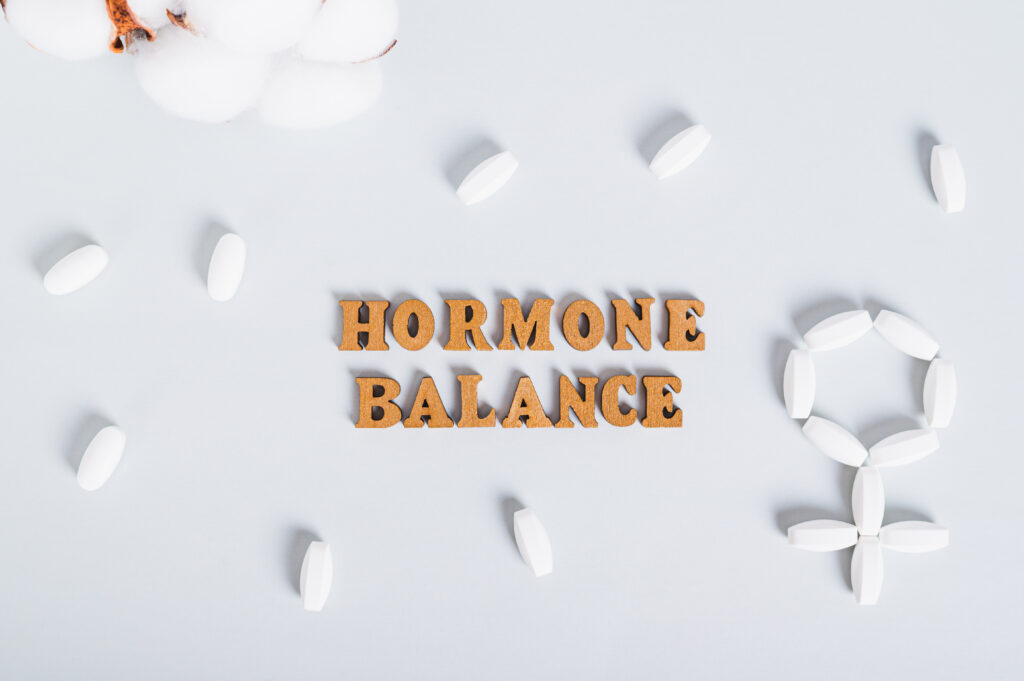Perimenopause, which is the transition phase leading up to menopause, can be a challenging time for many women. As hormone levels fluctuate, a range of symptoms can emerge, impacting daily life and overall well-being. Understanding these changes and how to manage them is crucial for maintaining health and quality of life during this period.
What is Perimenopause?
Perimenopause, also known as the menopausal transition, marks a significant period of hormonal shift before menopause when the ovaries gradually produce less estrogen, progesterone, and testosterone. This stage typically begins in a woman’s 40s but can start as early as the 30s or even earlier for some. As these hormone levels fall, various physiological changes occur, leading up to menopause—the point when the ovaries stop releasing eggs, and menstruation ends. This phase can last for several years, with each woman experiencing a unique journey through this transition.
During perimenopause, the decline in estrogen is not steady or predictable. Hormone levels can fluctuate widely, leading to changes in the menstrual cycle and the onset of menopausal symptoms. Some women may experience longer, shorter, or more irregular periods. Others may notice changes in menstrual flow, with periods becoming heavier or lighter.
The duration of perimenopause varies from woman to woman. For some, it may last only a few months, while for others, it can extend up to 10 years. On average, most women experience perimenopause for about four years.
Understanding the signs and symptoms of perimenopause can help women better navigate this transitional phase. By recognizing the changes happening in their bodies, they can seek appropriate medical advice and support to manage any discomfort or health concerns that may arise.
Common Symptoms of Perimenopause
The symptoms of perimenopause vary widely among women, but several are commonly experienced:
- Irregular Periods: As ovulation becomes more unpredictable, menstrual cycles may become irregular.
- Hot Flashes: Many women experience sudden feelings of warmth, often accompanied by sweating and flushing.
- Sleep Disturbances: Insomnia or disrupted sleep patterns are frequently reported.
- Mood Swings: Emotional changes, including irritability and depression, can occur.
- Vaginal Dryness: Decreased estrogen levels can lead to vaginal dryness, resulting in discomfort during sex.
- Decreased Fertility: As ovulation becomes less frequent, the chances of conceiving naturally decrease.
- Low Libido: Many women notice a decrease in sexual desire, which can be linked to lower levels of estrogen and testosterone.
- Brain Fog: Difficulty concentrating and memory lapses, often referred to as “brain fog,” are common and can be exacerbated by decreasing testosterone levels.
- Unexplained Weight Gain: Hormonal changes can also lead to weight gain, especially around the midsection.
These symptoms arise from the natural decline in estrogen, progesterone, and testosterone as women age, each impacting the body in unique ways. Understanding these changes can help manage symptoms more effectively.

Hormone Health and Management
Hormone Replacement Therapy (HRT) is a widely used treatment for managing perimenopausal symptoms, involving the supplementation of hormones such as estrogen and progesterone, which are in lower supply during this phase. Notably, HRT can also include testosterone, which plays a crucial role in overall health and wellbeing, and like estrogen and progesterone, tends to decrease as women age.
According to a study published in the Journal of the American Medical Association, HRT can effectively alleviate symptoms such as hot flashes, vaginal dryness, and also address issues related to low testosterone levels, such as reduced libido and fatigue. Including testosterone in hormone therapy can provide a more comprehensive approach to symptom relief during perimenopause.The benefits of HRT extend beyond symptom relief. Research has shown that HRT can also help prevent bone loss and reduce the risk of osteoporosis, a common concern during menopause. A recent article by the The National Center for Biotechnology Information also states “The protective role of estrogen in cardiovascular diseases is associated with a decrease in fibrosis, stimulation of angiogenesis and vasodilation, enhancement of mitochondrial function and reduction in oxidative stress”
It is crucial to have an educated and experienced healthcare provider who can guide you through the decision to start HRT. A knowledgeable provider can help assess your personal health profile, consider all potential risks and benefits, and determine the most appropriate therapy tailored to your needs. Their expertise ensures that you receive the most effective and safest treatment plan, enhancing your quality of life during perimenopause. A personalized approach is crucial, as the decision to use HRT should be based on a careful evaluation of a woman’s symptoms, health history, and preferences.
At Leawood Total Wellness we run a full panel that checks for important vitamins that can help optimize your health and help you feel better. Vitamins like Vitamin D, B12, and magnesium play essential roles in maintaining health and well-being during this transitional period.
Vitamin D is vital for bone health and immune function, B12 supports nerve function and energy production, and magnesium aids in muscle and nerve function, as well as sleep and mood regulation. Working closely with a healthcare provider can help women find the most effective strategies for their unique situation, ensuring they receive personalized advice on supplementing these vitamins and other non-hormonal approaches.
Hormone health and management during perimenopause require a thoughtful and individualized approach. By understanding the options available and weighing the benefits and risks, women can make informed decisions to support their well-being during this transitional phase.

Lifestyle Changes for Better Hormone Health
In addition to medical treatments, lifestyle changes can play a significant role in managing perimenopausal symptoms and promoting overall hormone health:
Regular Exercise
Engaging in regular physical activity, including strength training, is crucial during perimenopause. Strength training not only helps improve overall well-being but also combats muscle loss and strengthens bones, which are particularly vulnerable during this period. A recent study highlights that strength training can significantly mitigate the physiological changes of menopause by improving muscle mass and strength (Stanford Longevity).
Healthy Diet
A balanced diet rich in fruits, vegetables, whole grains, lean proteins, and healthy fats supports overall health and hormone balance. During perimenopause, increasing your intake of high-quality proteins, can help maintain muscle mass and overall health. Research suggests that a higher protein diet is beneficial during this transitional phase (PubMed, Feisty Menopause).
Stress Reduction
Managing stress is crucial for maintaining hormone balance and emotional well-being during perimenopause. Techniques like journaling, yoga, meditation, and deep breathing can help reduce stress levels and alleviate mood swings. A study in Menopause found that mindfulness meditation and yoga effectively reduced menopausal symptoms and improved quality of life in perimenopausal and postmenopausal women.
Adequate Sleep
Improving sleep quality is vital for hormone health. Perimenopause often disrupts sleep patterns, leading to insomnia or sleep disturbances. Establishing a regular sleep schedule, optimizing your sleep environment through the use of blackout curtains, sleep masks, and soothing sounds (like white or brown noise), and maintaining a cool room temperature can enhance sleep quality.
Avoiding Triggers
Identifying and avoiding triggers such as smoking, excessive alcohol consumption, and high levels of caffeine can significantly reduce the severity of symptoms like hot flashes and mood swings.
By incorporating these lifestyle changes into your daily routine, you can support your hormone health and navigate the perimenopausal transition more comfortably. Always consult with a healthcare professional before making significant changes to your diet or exercise routine.
Perimenopause is a natural part of aging, but it can bring a host of challenges. By understanding the symptoms and exploring various management strategies, women can navigate this transition more comfortably. It’s important to communicate openly with healthcare providers and seek support to maintain health and well-being during this phase of life.
At Leawood Total Wellness, we understand the complexities of perimenopause and are dedicated to providing personalized care to help you manage your symptoms and maintain your quality of life. Our team of experts offers a range of treatments, including hormone replacement therapy and lifestyle guidance, to address your unique needs.
Don’t let perimenopause disrupt your life. Contact us today to schedule a consultation and discover how we can support you on your journey to wellness. Together, we can develop a tailored plan to help you thrive during this natural transition.
For more information and to book an appointment, visit Leawood Total Wellness or call us at (913) 227-9150. Let us be your partner in navigating the changes of perimenopause with confidence and ease.
Contact us to explore how a customized BHRT treatment plan can be the key to a more vibrant, fulfilling life. Your path to wellness begins with a conversation tailored to you — let’s start yours today.




